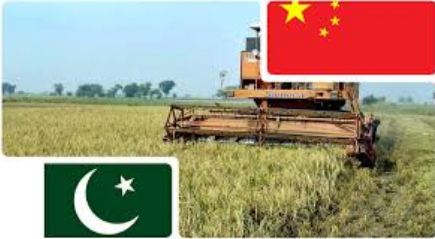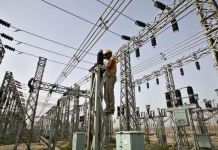ISLAMABAD, AUG 2 /DNA/ – Huang Pei, the Commercial Head of LTEC International Agriculture Development Company of China, participated as a guest speaker and discussed the role of Chinese enterprises in Pakistan at the Institute of Regional Studies on Thursday. The event, jointly organized with the Asian Institute of Eco-civilization, Research, and Development (AIERD), was moderated by AIERD CEO Mr. Shakeel Ahmed Ramay and attended by researchers, scholars, and students.
Ambassador Jauhar Saleem, President of IRS, highlighted the strong economic partnership between China and Pakistan. He emphasized that China is Pakistan’s top trading and investment partner, as manifested by the $25 billion mutual investment in the China-Pakistan Economic Corridor (CPEC) under the Belt and Road Initiative (BRI). With CPEC entering its second phase, the focus will shift to innovation, green development, technology, mining, and agriculture—areas with significant potential in Pakistan due to its extensive irrigation system, fertile lands, and large agricultural workforce. New projects, including the introduction of 5,000 tons of dry chilies and advancements in buffalo embryo technology, aim to improve product quality and distribution, promising further growth and prosperity for both nations through their continued collaboration.
Mr. Huang Pei outlined the China Chamber of Commerce in Pakistan’s (CCCPK) commitment to strengthening bilateral business ventures and socioeconomic cooperation, with active branches in Islamabad, Karachi, and Lahore. The Chamber supports projects across energy, infrastructure, textiles, telecommunications, and green production, nurturing local talent. He also informed about the role of these enterprises in disaster response, such as a $17 million donation for flood relief in 2020. The CCCPK has also carried out educational activities, signed an MoU with the Higher Education Commission, and played a crucial role in establishing desalination plants in Balochistan and Sindh.
In the realm of CPEC’s agricultural cooperation, which began in September 2022, efforts focused on improving Pakistan’s agricultural sector, particularly chili production, through contract farming, technological support, and farmer training
To further develop agriculture, he proposed advancements in technology, modern storage facilities, expanded market access in China, rural job creation, and the establishment of an agricultural project incubator. Pakistan’s import value in food reached $9 billion in 2023. China can solve this problem by increasing cooperation in the agriculture sector, making Pakistan not only food-sufficient but also enabling it to export various food items to China, such as rice, sesame, meat, and corn, Mr. Huang added. Through this cooperation, China can help Pakistan reduce imports of ginger and edible oil. Pakistan can also capitalize on Halal condiments as value additions in the market of 2 billion Muslims worldwide. Pakistan also has good products like pink salt but lacks capacity in brand building, he added.
Mr. Huang also noted losses in Pakistan’s agriculture due to a lack of warehouses, storage facilities, and processing plants, which are big problems for farmers but can be opportunities for investors. China imports $200 billion worth of food items annually. If Pakistan gets a share of 10 percent, it would open a window to $20 billion in revenue. Mr. Huang further elaborated that China’s cooperation with Pakistan in technology transfer started 20 years ago. Pakistan is and always will be a priority partner for China. Many Chinese companies have shifted to East Asian countries due to business and capacity feasibility. There are more opportunities, which depend on how Pakistan can become competitive for Chinese companies.
Mr. Shakeel Ahmed Ramay suggested that cooperation in agriculture will be mutually beneficial for both countries. Importing food from Pakistan will lower transportation costs for China. In Khyber Pakhtunkhwa and the former FATA region of Pakistan, good quality cheese is produced, presenting an opportunity for investors in exports, he informed. China can help Pakistan establish research centers to increase agricultural productivity. We can learn from China’s best practices in managing water for agriculture. China can play the role of facilitator, but we need to take the initiative, Mr. Shakeel pointed out.

















